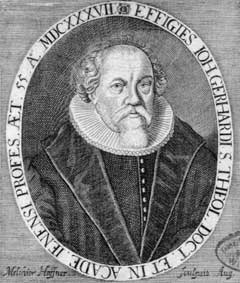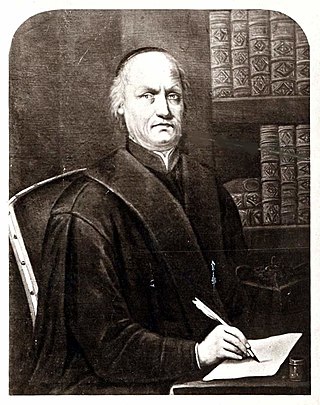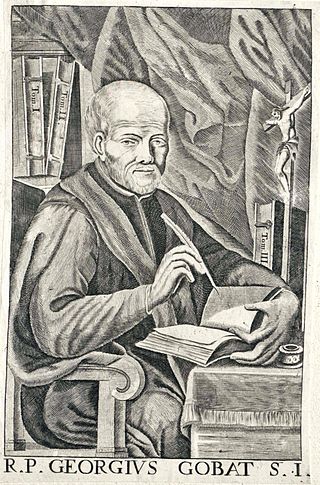
Engis is a municipality of Wallonia located in the province of Liège, Belgium.

Philip Schaff was a Swiss-born, German-educated Protestant theologian and ecclesiastical historian, who spent most of his adult life living and teaching in the United States.

Johannes Gerhard was a Lutheran church leader and Lutheran Scholastic theologian during the period of Orthodoxy.

Johann Joseph Ignaz von Döllinger, also Doellinger in English, was a German theologian, Catholic priest and church historian who rejected the dogma of papal infallibility. Among his writings which proved controversial, his criticism of the papacy antagonized ultramontanes, yet his reverence for tradition annoyed the liberals.

Gerrit Janszoon Vos, often known by his Latin name Gerardus Vossius, was a Dutch classical scholar and theologian.
Georg Hermes was a German Roman Catholic theologian who advocated a rational approach to theology. During his lifetime, his theology was greatly in vogue in Germany, but declined after the posthumous papal condemnation of "Hermesianism".

Joseph Hergenröther was a German Church historian and canonist, and the first Cardinal-Prefect of the Vatican Archive.

Sigebert of Gembloux was a medieval author, known mainly as a pro-Imperial historian of a universal chronicle, opposed to the expansive papacy of Gregory VII and Pascal II. Early in his life he became a monk in the Benedictine abbey of Gembloux.
Heinrich Joseph Dominicus Denzinger was a leading German Catholic theologian and author of the Enchiridion symbolorum et definitionum, a work commonly referred to simply as Denzinger after him.

Kaspar Ulenberg was a Catholic convert, theological writer and translator of the Bible.

Laurentius Surius was a German Carthusian hagiographer and church historian.

Johann Michael Sailer was a German Jesuit theologian and philosopher, and Bishop of Regensburg. Sailer was a major contributor to the Catholic Enlightenment.

Christoph Brouwer was a Jesuit priest of the Netherlands, and ecclesiastical historian. He is particularly known for his contribution to the history of the Archdiocese of Trier.

Charles-Joseph de Harlez de Deulin was a Belgian Orientalist, domestic prelate, canon of the cathedral of Liège, and member of the Academie Royale of Belgium, who studied and translated the Zoroastrian holy texts.

Johann Baptist von Hirscher was a German Catholic theologian associated with the Catholic Tübingen school. He exerted a great influence in the areas of moral theology, homiletics, and catechetics.
Antoine de Gaudier was a French Jesuit writer on ascetic theology.

Johann Emanuel Veith was a Bohemian Roman Catholic preacher. He was heavily influenced by the liberal theology of Anton Günther.

George Gobat was a French Jesuit theologian.

Servais-Théodore Pinckaers O.P. was a noted moral theologian, Roman Catholic priest, and member of the Dominican Order. He has been especially influential in the renewal of a theological and Christological approach to Christian virtue ethics.

Gerhard J. Bellinger was a German theologian, university professor of the New Testament, the history of Christianity, and the history of religions at Technical University of Dortmund.
















